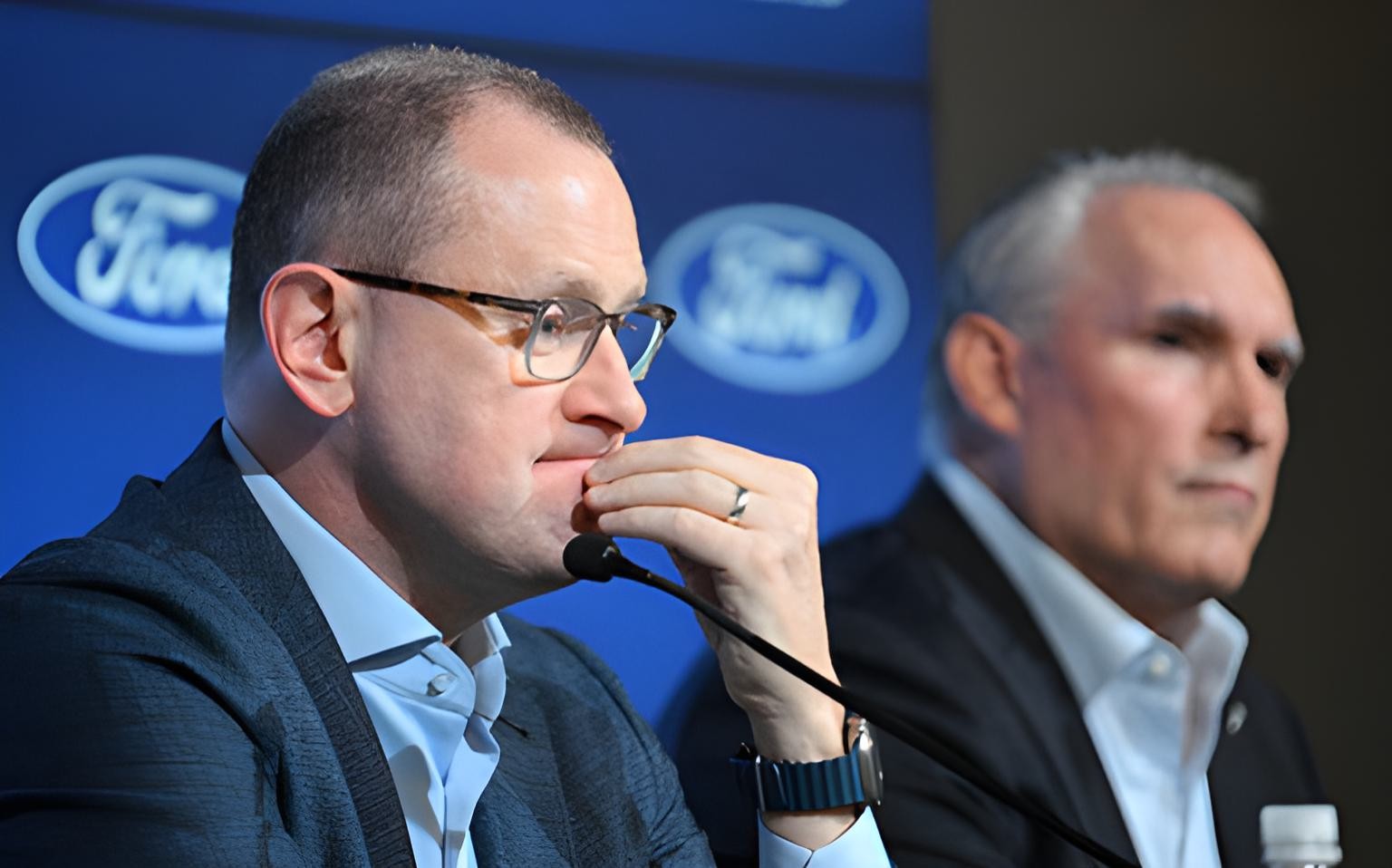It’s wild to think we’re only five days removed from the Maple Leafs’ ugly Game 7 loss to the Panthers. There is plenty to chew on after the fallout this week in Leafland.
Five thoughts for your weekend:
Brendan Shanahan’s inflection point with the core contracts
Most would agree that Brendan Shanahan got so much right in his early years as Leafs President but was ultimately let down by a core group of players in which he invested so much unrequited faith time and again at playoff time. In the last year, knowing Shanahan’s contract was expiring and he was likely gone without a playoff run of consequence, I’ve frequently circled back to the following Shanahan quote during the 2019 Nylander contractual dispute as a sort of inflection point in his tenure, knowing the direction all of the core contracts went afterward:
When I get together with some of my old mates from the Cup years in Detroit, we talk about winning together and growing together, and that’s what we remember. At the end of the day, we all found a way to fit with each other, so we kept adding to the group.
Shanahan and Kyle Dubas couldn’t establish this kind of culture by securing the buy-in from the Leafs’ core players, and they ultimately chose not to ruthlessly flex their leverage with their star RFAs, as the sharks on the other side of the negotiating table — agents Lewis Gross and Darren Ferris — won out. In 2019, Gross dismissed the talk about external comparables and emphasized where Nylander “fit in on the Leafs.” Nick Kypreos (a known Marner-connected source), just the other day, wrote about Tavares’ contract changing the calculation for Marner.
This goal-post shifting shouldn’t have been allowed inside the negotiating framework of those second contracts. UFA vs. RFA contracts are a non-starter as a comparison; there is a system of paying your dues in the hard-cap NHL, of teams gleaning plenty of surplus value from their top talent on their second contracts before paying up later. All of these players were yet to win anything and hadn’t compiled the nine years of consistently healthy, reliable, and highly productive hockey that Tavares (a captain in the league, a two-time Hart Trophy finalist, and an Olympic gold medalist) did to earn his UFA payday. Why did Shanahan and Dubas so clearly lose this argument, with all the leverage on their side?
After taking the softer, player-friendly route, the stars never delivered for Shanahan. In addition to betting on a rookie GM+rookie coach combination at a time when the franchise was shifting into win-now mode, the phrase “Can’t be afraid of your best players” sort of sums up a major part of Shanahan’s downfall for me, from the coaching approach to the front office decision-making.
Keith Pelley’s comments
I am on board with Keith Pelley’s sentiment about a “good isn’t good enough” culture shift; at this point, who isn’t? What gave me a little pause was when I tried to line it up with the statement, “We can all agree Chief changed the culture,” in the same presser.
If the culture has transformed for the better already, it led to what, exactly? The same playoff result from a mostly two-line team, with Auston Matthews and Mitch Marner stapled together no matter what, zero callouts of the stars/notable benchings at any point, and running the same power-play unit out there to lay an egg over and over in the playoffs?
The players seemed to buy into Berube’s identity — at least until they ran into an elite team more committed to its own in Florida — and blocked more shots and were better defensively, helped by Brad Treliving improving the defense and goaltending. Still, too much of the rest of it was Groundhog Day. To his credit, Berube helped focus the team on taking each game/opponent in the regular season more seriously, which allowed them to lose to the Panthers in the second round instead of the first (winning the division is still important, nonetheless).
This is not to suggest Berube can’t be a part of the solution now, and maybe that’s what Pelley meant. I mostly understood Berube’s vision of what playoff-winning hockey needs to look like; I say “mostly” because the Leafs definitely need to possess the puck more in the offensive zone than they did this season/playoffs. Berube seems to have a knack for simple-but-effective, consistent messaging that achieves buy-in from his players (helped by his highly likable personality and people skills). But there was also a “Berube is in the honeymoon phase with all this elite talent” vibe to the whole season for me.
As he fell into the same traps Sheldon Keefe did for most of his coaching tenure in Toronto, many of us were sitting there thinking, “We’ve lived this for years, Chief. We know where this leads.” Berube seemed kind of stunned after his team’s Game 5 and Game 7 performances, but no truly honest-with-themselves Leaf diehard could say they were blindsided by those kinds of displays or unaware of the underlying issues by this point.
To me, it has never been a these-players-don’t-care issue. It’s a these-players-get-scared-and-struggle-to-handle-the-pressure-they’ve-heaped-on-themselves-with-their-contracts-and-past-playoff-failures issue, and the coaching staff feeds into it with the ice-time allocation and line-combination rigidity. A top-heavy lineup completely relies on the stars carrying the team and dominating matchups against other elite, highly competitive players in the league, or the Leafs will have a bad time.
Setting and forgetting Matthews-Marner can be an intoxicatingly easy decision — elite playmaker + elite goalscorer = don’t overthink it! — but the whole season was about building toward beating the Florida Panthers in a seven-game series in the spring. In the end, as Anthony Petrielli wrote so well in his post-mortem, it was a three-plus line team beating a two-line team.
Berube tried spreading it out for one game against Ottawa in mid-March, and it — not surprisingly — looked like the players hadn’t figured it out/gelled yet (or perhaps hadn’t bought into it fully). Berube should’ve stuck to his guns on this for longer rather than bailing on it so quickly. I view it as his biggest misstep of the season.
Next season, Matthews-Marner may not be a “crutch” that’s even available to Berube, which would be somewhat scary but could also be strangely freeing in its own way, while recognizing this is a very hard player to replace.
The Tre is taller
Pelley wasn’t announcing a new title for GM Brad Treliving on Friday, nor did he suggest one was coming anytime soon. Still, when Treliving used to report to Shanahan, who reported to Pelley, but now reports directly to Pelley, Treliving is almost certainly more empowered (and Berube probably is, too. It’s either that, or Pelley wasn’t telling the truth when he said the hockey decisions are left to the “hockey-oriented” people). I’m also reminded of the reports about the previous management regime’s desire for a more streamlined organizational hierarchy for decision-making; Treliving will now operate with those direct-report-to-MLSE-leadership reins.
Within the confines of the “core-four + the rest” structure, Treliving got a lot right in his second season, on defense and in net. The jury is still out on the Scott Laughton addition, but I liked Laughton’s playoff a lot and believe more production might’ve been possible if Berube tried to build three proper lines vs. almost exclusively stapling him to Calle Jarnkrok and Steven Lorentz.
The most questionable decisions of Treliving’s tenure so far — and they’re fairly mild — may well be the David Kampf and Max Domi contracts (some would throw in Ryan Reaves’ deal here, but he was at least buried at minimal cost). To be fair to Domi, as much as he is a frustrating player and an awkward piece to place at times, he does show the courage to go out and attack the game/try to be a difference maker in those big playoff moments, while so many others on the team seem to shrink.
The theme here is that Treliving seems to have a great eye for defensemen (and nailed the Anthony Stolarz addition/contract) but has yet to make a move of major consequence at forward and has a mixed record among the smaller transactions he has made up front (the Max Pacioretty add wasn’t instantly popular but worked out as well as possible). There will be a healthy amount of cap space to maneuver — potentially a lot, with a potentially massive hole to fill up front. Can he transform the Leafs into a three-line team that maybe isn’t as special at the top end but can truly live out the “we’re not a core four; we’re a team of 20” ethos (to borrow Pelley’s favourite buzzword)?
The UFA crop isn’t bountiful with appealing options, and some real managerial creativity will be required as the Leafs potentially embark on a post-Core Four transition that could make or break their sustained-contention aspirations.
The Panthers’ post-series comments got way too much play in the Toronto market
The pressure of playing in Toronto became a major talking point in the hockey world after the Game 7 loss to Florida, and from my read of it, a chunk of it was driven by the comments from Matthew Tkachuk, Brad Marchand, and Paul Maurice after the game, particularly Tkachuk’s remarks about how far the Leafs might go if they were in another market.
That’s annoying in its own right, to hear long-suffering Leafs fans — who were very supportive throughout the season/playoff run, created an amazing atmosphere in the SBA before Game 7 went off the rails, and were willing the team on even at 3-1 down in the third period — implicitly blamed by particularly annoying players on the opposition, so freshly in the wake of the brutal series loss. But I don’t even blame the Panthers in question, to be honest. It really shouldn’t have generated such a big media storyline to the point where Pelley addressed it up front in his opening statements of Friday’s press conference.
Let’s place those comments in their proper context for a second. Tkachuk and Maurice won a Cup with Oliver Ekman-Larsson, Stolarz, and Lorentz as teammates just the season prior. Tkachuk has a history dating back to junior with Marner and has gotten to know and befriend Matthews through Team USA engagements. Marchand and Marner had a bit of a big-brother-little-brother dynamic going on at 4 Nations (Marchand has called him his “favourite player” in the past, as there has been some good-natured ribbing between the two over the years). That’s just a few examples that spring to mind; naturally, a lot of these guys are friends in the small world of hockey, or regularly cross paths at a minimum (Tkachuk told Chris Tanev that he’d see him this summer in the post-series handshake line, as another example).
When your buddies are down and out after a devastating Game 7 shellacking at the hands of your team, of course, you’re going to spring to their defense and say they’re great players/a great team that could’ve won the series or gone all the way with the right breaks, and that the critics on the outside, of which there are many in any big market, should lay off of them. It’s very much in keeping with hockey culture to look out for your boys in this way, and friendships aside, it’s seen as the classy way to win.
Granted, Tkachuk, Marchand, and Maurice can be a particularly colourful/compelling quote — which threw more gas on the fire — but let’s use some common sense. After a hard-fought seven-game series, there is going to be a nod to the other team/questions asked about the other team, and they weren’t going to come out and say, “Those guys really do suck and should feel bad.”
This doesn’t mean that Leafs fans caring so much or the team getting covered so exhaustively makes it so that the team can’t win in the playoffs. Take a look around the sports world for even two seconds and think really hard about whether that theory holds water in many other big sports markets around the globe.
I get that the jersey and beer tossing by a few individuals at Game 5 and Game 7 dovetailed beautifully with this narrative — and Marchand, Tkachuk, and Maurice provide a compelling quote — but can we avoid lazily peddling the cheapest narrative possible? Sure, the market isn’t for everyone, but Leafs fans fall in love with players of all types if they perceive them as laying it all on the line for the Maple Leaf, and the bar is certainly not set at Cup-or-bust for them to like you.
The quote “Pressure is a privilege” and the way he handled the questions about the fan response to Game 7 were my favourite parts of Pelley’s press conference.
Mitch Marner
Lastly, on the Marner question mark, let’s lay out a few key facts up front:
– Marner is a Toronto kid and born-and-raised Leafs fan; he and his wife’s families are from the area, and he is a new father. He’s extremely close friends with other core members of the team.
– Marner plays a massive role in Toronto (he sees all the ice time he can handle and more) on a perennial playoff team, seemingly perpetually centered by the best goal-scorer of his generation.
– The Leafs had been keen on extending Marner with a massive contract extension. Only when they could not get any momentum/dialogue going on a new deal by the trade deadline did they approach Marner with a trade option — which it behooved Treliving to present, given it was Mikko Rantanen on the other side of the offer in exchange for an unsigned Marner.
– When the news of the trade proposal leaked, the GM immediately came out and staunchly defended Marner publicly (despite the lack of progress on a contract), and after the playoffs ended in disappointing fashion, the head coach spoke glowingly of Marner, the player and person, while unequivocally stating he wants him back next season.
With all of those facts in mind, if Marner still wants to leave, it’s probably because he’s soured on the market, or he’s that inordinately obsessed with a few hundred thousand extra on the AAV, which means a divorce is probably the best outcome anyway. If you pay someone $13 million (or whatever) to play for the Leafs, you better be damn sure that they, beyond any shadow of a doubt, want to embrace the Toronto market and all that it entails, or it’s simply not going to end well. That’s true of any player, let alone one with Marner’s history in the market.
There is another scenario wherein Marner, in his heart of hearts, truly wants to stay in Toronto and can’t imagine himself playing anywhere else but feels beaten down; he could still be feeling this out, deciding what is best and if he could really uproot his family. In which case, if both sides are still interested in making this work in the next month and change, he should probably do himself a favour by taking even a nominal perceived discount (keeping in mind the Leafs can give him the eighth year) which will win at least some fans over and clean the slate a little, to some extent. I don’t find this at all likely, knowing the history of contract negotiations with his party, but it really wouldn’t take much to win many Leafs fans back over if he commits to staying home and getting the job done in Toronto without bending the team over to the maximum degree possible.
Imagine a world where Marner signs at a perceptibly reasonable (but obviously still generational-wealth-generating) figure and declares something similar to the following words: “I could never see myself anywhere but in my home, Toronto. Winning a Cup without a Leaf on my chest just wouldn’t be the same.”
It wouldn’t erase all the playoff failures or win over the entire fan base overnight, but it wouldn’t be a bad start.















![John Gruden after the Leafs prospects’ 4-1 win over Montreal: “[Vyacheslav Peksa] looked really comfortable in the net… We wouldn’t have won without him” John Gruden, head coach of the Toronto Marlies](https://mapleleafshotstove.com/wp-content/uploads/2025/09/gruden-post-game-sep-14-218x150.jpg)


















